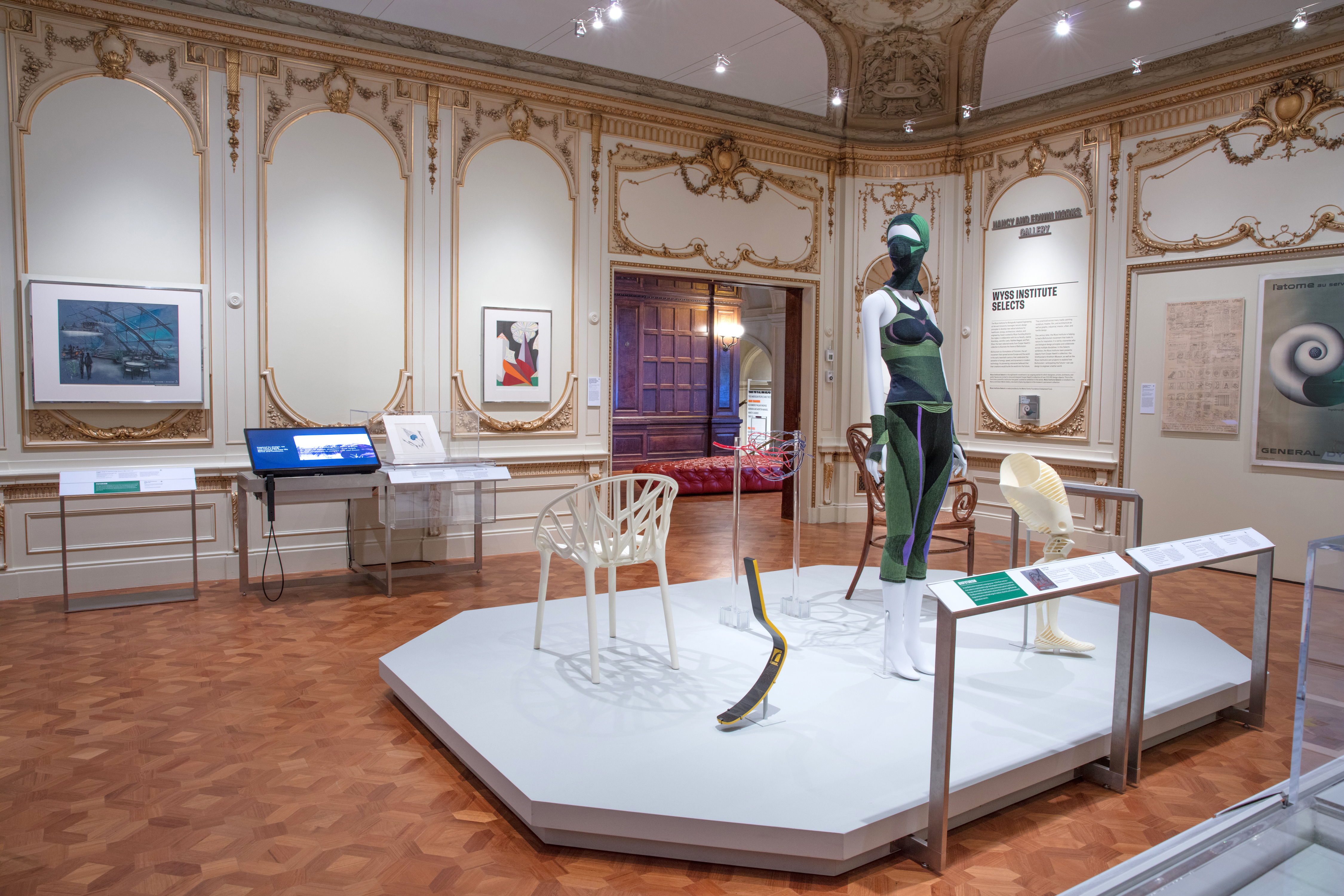Wyss Institute Selects

Installation view of Wyss Institute Selects. Photo Matt Flynn © Smithsonian Institution

Installation view of Wyss Institute Selects. Photo Matt Flynn © Smithsonian Institution
Wyss Institute Selects: Works from the Permanent Collection is curated by members of the Wyss Institute for Biologically Inspired Engineering at Harvard University, led by its founding director, Don Ingber, working in collaboration with his co-faculty, Joanna Aizenberg, Jennifer Lewis, Radhika Nagpal, and Pam Silver.
Founded in 2009, the Wyss Institute is a world leader in biodesign engineering. The Institute has eighteen core faculty members and more than 375 full-time scientific and engineering staff from a broad range of disciplines. The collaborators leverage nature’s design principles to develop disruptive technology solutions for healthcare, energy, architecture, robotics, and manufacturing.
For the exhibition, the Wyss Institute conceived of the theme of Biofuturism, and selected works from the museum’s collection to describe the progression of ideas, objects, visions, and collaborations throughout history that culminated in this new approach to Design Science.
The Biofuturism vision is a new formulation of the Futurism art and design movement that spread across Europe and the world in the early twentieth century, celebrating the energy and form-shaping dynamism of modern technology. The pioneering Futurist visionaries believed that their art would hurtle the world into the future, and they practiced in virtually every medium, ranging from painting, sculpture, theater, film, and architecture to graphic, industrial, interior, urban, and textile design.
“When I pondered the challenge before us, a memory from when I was an undergraduate student popped into my head. I remembered first seeing the works of a group of designers and artists who called themselves ‛Futurists.’ Their goal was to anticipate a future that would be improved through technology innovation, and to influence others through their work. Their vision resonates deeply with our own; however, we at the Wyss Institute go beyond depiction and actually use design to guide development and commercialization of new bioinspired technologies, which we hope will redefine our future and make the world better for all.” —Don Ingber
One century after the birth of the Futurist movement, the Wyss Institute is helping to birth a Biofuturism movement that looks to nature for inspiration, and that uses biological design principles to create technologies for a broad range of medical, industrial, and environmental applications.
In this Selects exhibition, the Wyss Institute team uses objects in Cooper Hewitt’s permanent collection and borrows from Smithsonian’s Hirshhorn Museum and Wyss Institute to explore how Biofuturism can go beyond art anticipating the future and, instead, use design to engineer a better world.
Wyss Institute Selects is made possible by the Marks Family Foundation Endowment Fund.
Featured Image: Installation view of Wyss Institute Selects. Photo Matt Flynn © Smithsonian Institution